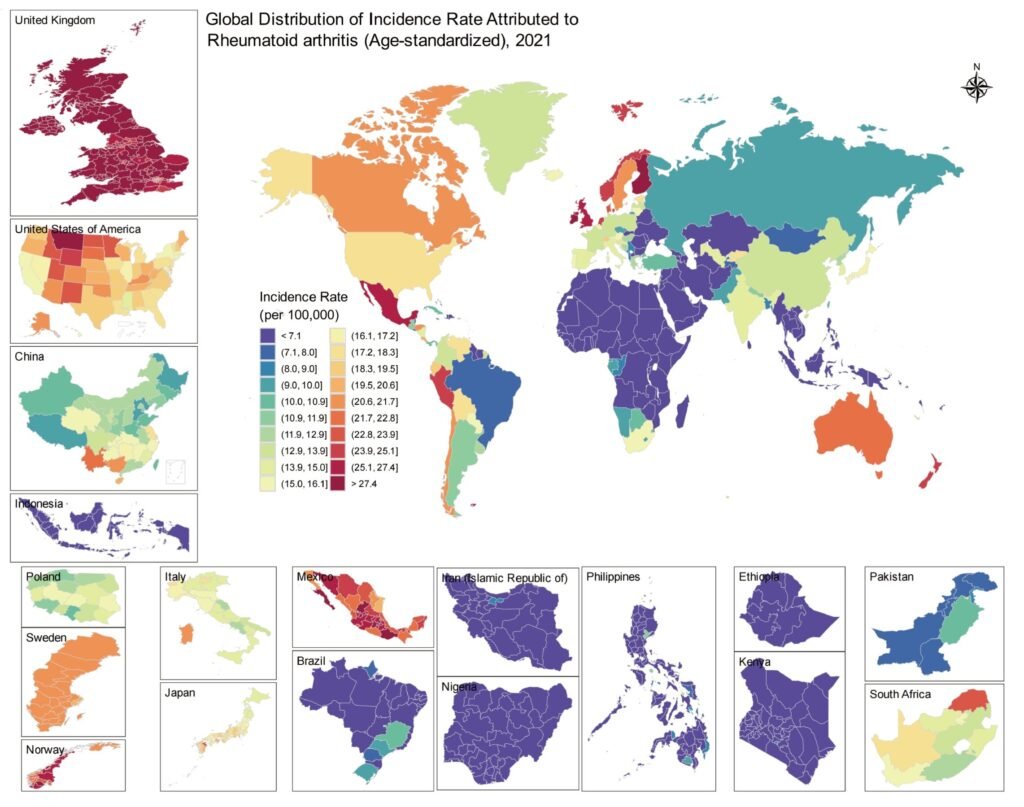Rheumatoid arthritis is a chronic autoimmune disease that affects millions of people worldwide. A recent AI-powered study published in the Annals of the Rheumatic Diseases has shed light on the global burden of rheumatoid arthritis since 1980. The study utilized deep learning techniques and policy simulations to uncover actionable insights for localized interventions, revealing local hotspots, socioeconomic disparities, and worsening inequalities in disease burden.
Lead by principal investigator Queran Lin from Imperial College London and Sun Yat-Sen Memorial Hospital in Guangzhou, the study aimed to provide a more granular understanding of rheumatoid arthritis trends on a global scale. By analyzing data from 1980 to 2021, the researchers were able to identify key findings that highlight the increasing burden of rheumatoid arthritis, particularly in high and high-middle sociodemographic index (SDI) countries.
One of the key takeaways from the study was the observation of widening inequalities in disease burden, with countries like Finland, Ireland, and New Zealand showing the most significant disparities. The researchers also noted the importance of proactive health care policies, such as early diagnosis programs, in reducing the burden of rheumatoid arthritis in high SDI regions like Japan and the UK.
Looking ahead to 2040, the study projected an increase in disability-adjusted life years (DALYs) in low-middle SDI regions due to aging and population growth. However, in high SDI areas, DALYs may decrease, highlighting the potential impact of interventions such as smoking cessation programs in reducing rheumatoid arthritis deaths and DALYs.
Co-lead author Baozhen Huang from City University of Hong Kong emphasized the importance of evidence-based precision health policy and targeted interventions in addressing the global burden of rheumatoid arthritis. The researchers hope that their findings will inform future clinical decisions and health policy planning, especially in regions where subnational evidence has been limited.
In conclusion, the AI-powered study provides a comprehensive analysis of rheumatoid arthritis trends and disparities, offering valuable insights for policymakers at the global, national, and local levels. By leveraging advanced analytical techniques and deep learning models, the researchers have redefined the paradigm of health surveillance and provided a roadmap for more effective public health interventions in the fight against rheumatoid arthritis.


